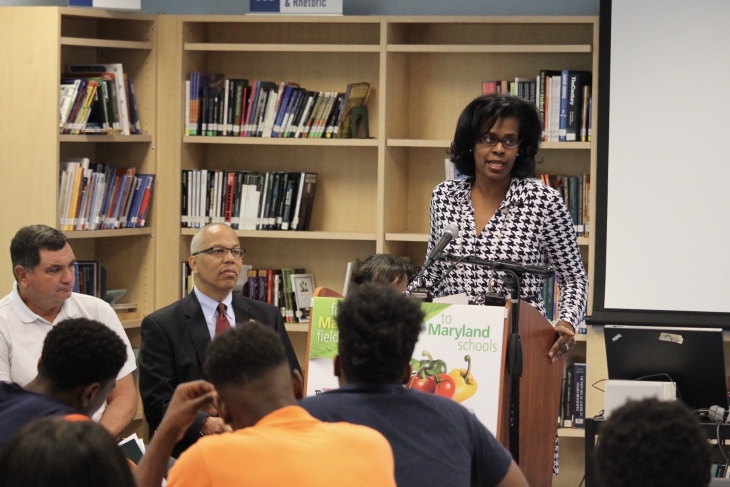As protests against racism and police brutality erupt across the nation—during a worldwide pandemic, no less—Americans are coming to face the harsh reality that life as they previously knew it is no more. Until there’s a vaccine, the “normal” that was pre-Covid-19 can never be again, and the “normal” that was pre-George Floyd must never be again. To emerge from these trying times as a stronger, more just society, teachers have incredible potential to help uphold our country’s promise of equal opportunity, regardless of race or background. But they might consider going beyond the classroom to have an even larger impact.
Just 13 and 15 percent of today’s teachers believe state chiefs and district superintendents, respectively, make a very big difference in the lives of students. Perhaps because of this, only 5 percent are actually interested in overseeing state and district education systems themselves. These were among the key findings of a new report from Chiefs for Change (CFC), a national network of state and district education leaders. It surveyed current and former teachers and principals to help inform its recommendations on how systems can expand leadership opportunities and development.
A few weeks ago, the Fordham Institute collaborated with CFC to release a special edition of the Education Gadfly Show podcast centered on the poll results—“Teacher to Chief: Pathways to Educational Leadership.” CFC COO Julie Rafal-Baer laid out the problem: Teachers are convinced that top leadership roles have limited capacity to impact teaching and learning due to their political and bureaucratic natures.
To help dispel this misconception, Fordham president, Mike Petrilli, spoke with superintendent of Palm Beach County Donald Fennoy and chancellor of D.C. Public Schools Lewis Ferebee. Both stressed that becoming heads of districts did not mean disconnecting from students, teachers, and the classroom. As Fennoy put it, “As a superintendent, I control the movements of my day and who I meet with. I still do a lot of reading in classrooms. I visit schools every week. So a lot of it is what you choose to prioritize as a leader.” Ferebee added that these conversations and interactions within school buildings significantly inform his policy decision-making.
Founder and CEO of Chalkbeat Elizabeth Green also moderated a panel with former superintendent of Palm Beach County Robert Avossa, chief education officer of Chicago Public Schools Latanya McDade, and chief education officer of Baltimore City Public Schools Sonja Santelises. While no journey to the chief role is the same, each of them spoke of key mentors who encouraged them to step into systems-level leadership (despite initial reluctance or opposition). Avossa said this cycle of tapping and cultivating leadership continues on: “We’re also teaching adults in the sense that we’re leveraging the responsibilities and experiences that we have and teaching people how to navigate to the next job.”
Santelises and McDade additionally talked about the importance of demographic representation in top positions. “I look around, and not a lot of women and not many people of color, but the opportunity to use my capital on behalf of those who, frankly, should be in [those rooms of power] with me—but who can’t—is what makes this job worthwhile,” Santelises said.
Throughout the episode, each chief described the personal rewards as well as challenges that come with the job. McDade finds purpose in the opportunities “to create policy, to have initiatives that are launched in the district for our students who are our most vulnerable…and to support teachers—like me—who come into the classroom without access to the resources they might need.”
Petrilli and CFC CEO Mike Magee highlighted that, although education leaders have in the past typically come from non-teaching backgrounds, there has been a greater appreciation for “deep knowledge and expertise [gained] in the classroom, to the role of leadership in school systems,” as evidenced by all the former educators who are now chiefs featured in the podcast.
Of course, there was also discussion on how Covid-19 has affected chiefs’ current and future work, and how strong, effective leadership is especially needed in these times. In the midst of a national reckoning with racism and police violence, this statement is even truer now.


